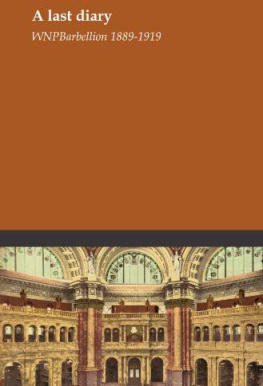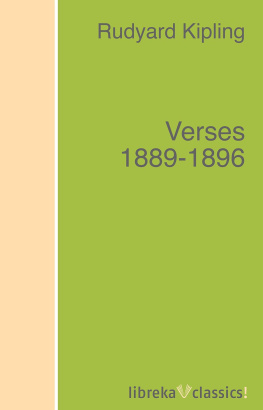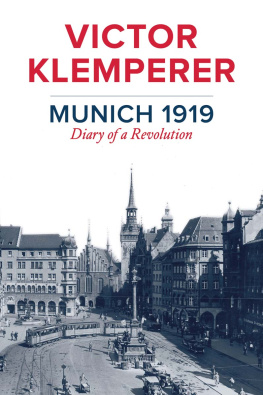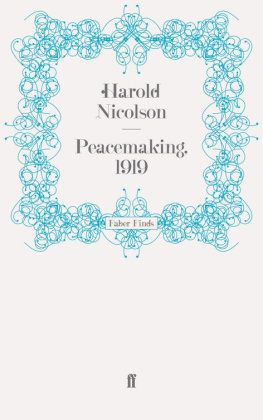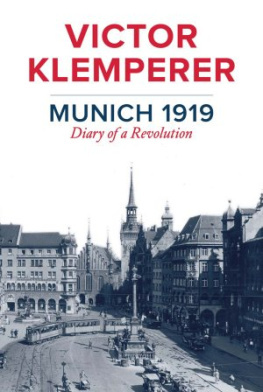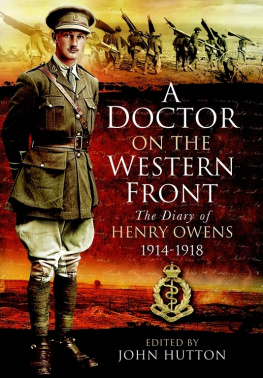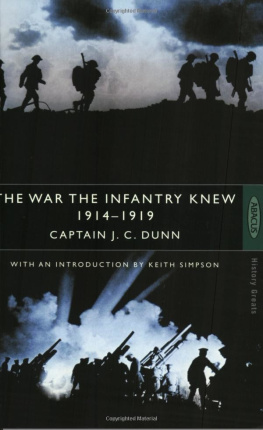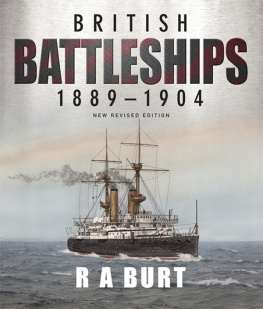W. N. P. Barbellion 1889-1919 - A last diary
Here you can read online W. N. P. Barbellion 1889-1919 - A last diary full text of the book (entire story) in english for free. Download pdf and epub, get meaning, cover and reviews about this ebook. year: 1920, publisher: Library of Congress, genre: Detective and thriller. Description of the work, (preface) as well as reviews are available. Best literature library LitArk.com created for fans of good reading and offers a wide selection of genres:
Romance novel
Science fiction
Adventure
Detective
Science
History
Home and family
Prose
Art
Politics
Computer
Non-fiction
Religion
Business
Children
Humor
Choose a favorite category and find really read worthwhile books. Enjoy immersion in the world of imagination, feel the emotions of the characters or learn something new for yourself, make an fascinating discovery.
- Book:A last diary
- Author:
- Publisher:Library of Congress
- Genre:
- Year:1920
- Rating:3 / 5
- Favourites:Add to favourites
- Your mark:
- 60
- 1
- 2
- 3
- 4
- 5
A last diary: summary, description and annotation
We offer to read an annotation, description, summary or preface (depends on what the author of the book "A last diary" wrote himself). If you haven't found the necessary information about the book — write in the comments, we will try to find it.
A last diary — read online for free the complete book (whole text) full work
Below is the text of the book, divided by pages. System saving the place of the last page read, allows you to conveniently read the book "A last diary" online for free, without having to search again every time where you left off. Put a bookmark, and you can go to the page where you finished reading at any time.
Font size:
Interval:
Bookmark:
This book made available by the Internet Archive.






THE LIFE AND CHARACTER OF BARBELLION
THE opening entry in A Last Diary was made on March 21, 1918; the closing sentence was written on June 3, 1919. In The Journal of a Disappointed Man the record ended on October 21, 1917, with the one word "Self-disgust." An important difference between the first diary and that now published lies in the fact that the first embodies a carefully selected series of extracts from twenty post-quarto volumes of manuscript in which Barbellion had recorded his thoughts and his observations from the age of thirteen without any clearly defined intention, except towards the end of his life, of discovering them to any but one or two of his intimate friends. He often hinted to me that some parts of his diary would " make good reading" if they could be printed in essay form, and I think he then had in mind chiefly those passages which
su
LIFE AND CHARACTER
Applied the inspiration of Enjoying Life, the volume of essays that revealed him more distinctively in the character of " a naturalist and a man of letters." Still, the diary was primarily written for himself. It was his means of self-expression, the secret chamber of his soul into which no other person, however deep in his love and confidence, might penetrate. More than once I asked him to let me look at those parts which he thought suitable for publication, but shyly he turned aside the suggestion with the remark: " Some day, perhaps, but not now." All I ever saw was a part of the first essay in Enjoying Life, and an account of his wanderings " in a spirit of burning exultation " over the great stretch of sandy " burrows " at the estuary of that beautiful Devonshire river, the Taw, where in long days of solitude he first taught himself with the zeal and patience of the born naturalist the ways of birds and fish and insects, and learnt to love the sweet harmony of the sunlight and the flowers ; where, too, as a mere boy he first meditated upon the mysteries of life and death.
The earlier Journal, then, was, generally speaking, spontaneous, not calculated for effect, a part of himself. He wrote down instinctively and by habit his inmost thoughts, his lightest impression of the doings of the day, a careless jest that amused him, an irritating encounter with a foolish or a stupid person, something newly seen in the structure of a bird's wing, a sunset effect. It was only on rare occasions that he deliberately experimented with forms of expression. But I cannot help thinking that the diary contained in the present volume, though in one sense equally a part of himself, has a somewhat different quality. It appears to bear internal evidence of having been written with an eye to the reader because of his settled intention that it should be published in a book. He has drawn upon the memories of his youth for many of the most interesting passages. He has smoothed the rough edges of his style with the loving care of an author anticipating criticism, and anxious to do his best. Whether the last diary will be found less attractive on that account is not for me
viii LIFE AND CHARACTER
to say. The circumstances in which it was written explain the difference, if, as I suppose, it is easy to detect. In the earlier period covered by A Last Diary the original Journal was actually in the press; in the later period it had been published and received with general goodwill. Barbellion certainly did not expect to live to see the Journal in print, and that is why he inserted at the end its single false entry, " Barbellion died on December 31" -1917. A few of the later reviewers, whose sense of propriety was offended by this " twisting of the truth for the sake of an artistic finish," rebuked him for the trick played upon his readers. But he refused to take the rebuke seriously, " The fact is," he said with a whimsical smile, " no man dare remain alive after writing such a book."
A further difference between the present book and its two predecessors is that both the Journal and Enjoying Life were prepared by himself for publication, though the latter appeared after his death, whereas A Last Diary was still in manuscript when
he die
x LIFE AND CHARACTER
shows no sign of mental deterioration or of any decline in the quality and texture of his thoughts, certainly no failure in the power of literary expression. The very last long entry, written the day before he laid down his pen to write no more, is a little masterpiece of joyous description, in which with the exact knowledge of the zoologist and the subtle sense of the artist, he gives reasons why " the brightest thing in the world is a Ctenophor in a glass jar standing in the sun." Mr. Edward Shanks, in an essay of singular understanding, has quoted this particular entry, a flashing remembrance of earlier days, as a characteristic example of those " exquisite descriptions of landscapes and living things which grow more vivid and more moving as the end approaches." The appreciation written by Mr. Shanks appeared in March of the present year in the London Mercury, which also published in successive numbers other extracts from the diary that is now given in extenso. With the help of my brother, H. R. Cummings, who has been responsible for most of the work involved in preparing the manuscript for the
press, I have made a few verbal changes and corrections ; and certain passages have been omitted which, now that Barbellion's identity is established, seem to refer too openly and too intimately to persons still alive. Otherwise the entries appear exactly as they were made.
In recent months I have been asked by various persons, many of whom I do not know and have never seen, but who have been profoundly interested in the personality of Barbellion, to write a " straightforward " account of his life. Some of these correspondents seem to imagine that it holds a strange mystery not disclosed in the frank story of the Journal, while others suspect that the events of his career, as he recorded them, are a judicious blend of truth and fiction. I can only say as emphatically as possible that there is no mystery of any sort, and that the facts of his life are in close accordance with his own narrative. Obviously the disconnected diary form must be incomplete, and in some respects puzzling; and clearly he selected for treatment in a book those entries of fact which were appro-
xii LIFE AND CHARACTER
priate to the scheme of his journal. They were chosen, as I have already indicated, from a great mass of material that accumulated from week to week over a period of about fifteen years. But they are neither invented nor deliberately coloured to suit his purpose. When he spoke of himself he spoke the truth as far as he knew it; when he spoke of others he spoke the truth as far as he knew it; when he spoke of actual events they had happened as nearly as possible as he related them.
The accounts of his career, published at the time of his death last year, were accurate in their general outline. Bruce Frederick Cuminings (Barbellion's real name) was born at the little town of Barnstaple in North Devon, on September 7, 1889. He was the youngest of a family of sixthree boys and three girls. His father was a journalist who had achieved no mean reputation, local though it was, as a pungent political writer, and had created for himself what must have been, even in those days, a peculiar position for the district representative of a country
Next pageFont size:
Interval:
Bookmark:
Similar books «A last diary»
Look at similar books to A last diary. We have selected literature similar in name and meaning in the hope of providing readers with more options to find new, interesting, not yet read works.
Discussion, reviews of the book A last diary and just readers' own opinions. Leave your comments, write what you think about the work, its meaning or the main characters. Specify what exactly you liked and what you didn't like, and why you think so.

